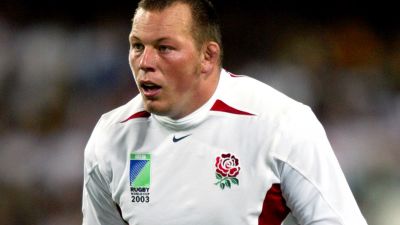Former Northampton Saints rugby star Steve Thompson 'can't remember World Cup win' after dementia diagnosis

Former Northampton Saints rugby player Steve Thompson has revealed he "can't remember" winning the Rugby World Cup with England in 2003 after he was diagnosed with early-onset dementia.
Thompson, 42, is one of eight former players who are planning to sue the rugby authorities for negligence over brain injuries they have suffered.
Thompson played every game of the famous World Cup triumph in Australia, but says he now can't recall the tournament at all.
He was diagnosed with early onset dementia and probable CTE (chronic traumatic encephalopathy) in November, and he admits he now wishes he had "never turned professional."
"Knowing what I know now, I wish that I had never turned professional. I went from working on a building site and training twice a week to training every day, sometimes twice a day," he said.
"Many of those training sessions were contact sessions using a scrummage machine and I would be in the thick of things, with all the pressure pushed on me.
"It was not uncommon for me to be left dazed, seeing white spots and not knowing where I was for a few seconds, sometimes I would pass out completely. It was just an accepted part and parcel of training.
"I really wished that I had ended my career earlier, maybe my diagnosis might not be so bleak."
Thompson's former England teammate Michael Lipman, as well as ex-Wales international Alix Popham, are among the other players who are contemplating legal action against World Rugby, the Rugby Football Union and the Welsh Rugby Union, according to the law firm Rylands Law who are representing the case.
The players are convinced that repeated blows to the head are to blame for their condition and have drawn up a 15-point charter of alterations they feel would make the game safer - including a limit to the number of contact sessions permitted in training.
"The vast majority of the former players we represent love the game and don't want to see it harmed in any way," said Richard Boardman from Rylands Law.
"They just want to make it safer so current and future generations don't end up like them. This is why we're asking World Rugby to make a number of immediate, relatively low-cost changes.
"The obvious first step is for World Rugby, RFU and WRU to stop being in denial and acknowledge that there is a problem."